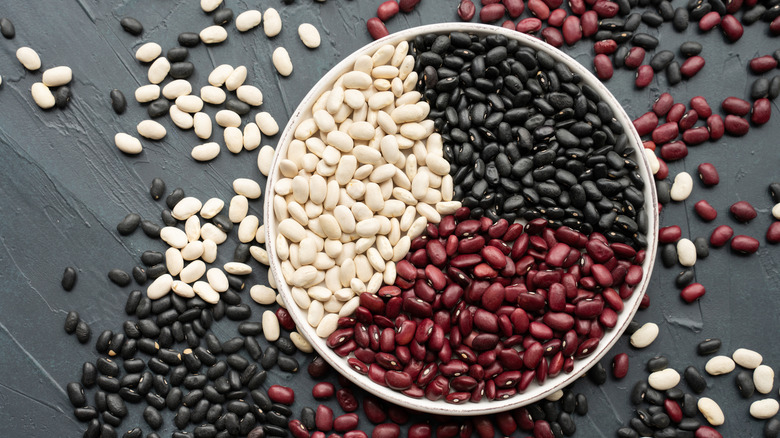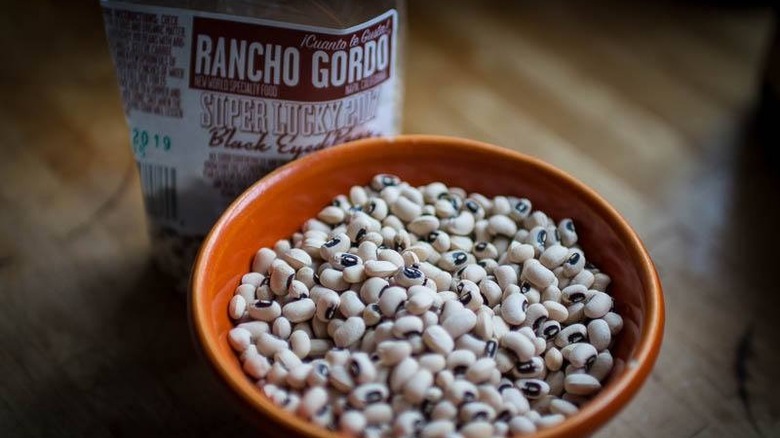The Bean Company Ted Allen Swears By
In recent years, beans have become a bit of a celebrity in the food world, appearing everywhere from Samin Nosrat's wildly popular book and television show, "Salt, Fat, Acid, Heat" (as seen on her official website) to Alison Roman's viral stew recipe (per the New York Times). Perhaps one of the most famous new members of the bean elite is Steve Sando, founder of the renowned heirloom producer, Rancho Gordo.
Ted Allen, host of Food Network's "Chopped," claims Rancho Gordo is selling "beans that nobody else is cultivating" (via Food Network). By skimming the product list at the company's website, you'll likely find several varieties you've never heard of. Sando began growing beans in 2000 when he was living in Napa, California, according to The New Yorker. As Rancho Gordo's website adds, Sando was initially interested in heirloom tomatoes before pivoting to his eventual product. "I thought I had a gift," he told The New Yorker. "But really it was Napa. Anything can grow in Napa."
Before he knew it, Sando was standing at the helm of a homegrown empire. As of 2018, Rancho Gordo sold half a million pounds per year, and the Rancho Gordo Bean Club has attracted celebrities like Andy Richter and Emilio Estevez (not to mention a lengthy waitlist of others), according to The New Yorker. The cost of these goods might be a little more than you'd expect, but, as Allen says, "for a great pot o' beans, it's worth it."
What makes Rancho Gordo beans so delicious?
"If your point of reference is the canned kidney bean at a salad bar, I totally understand if you hate beans," Sando previously joked with The New Yorker. But Rancho Gordo is a far cry from the shelf-stable version — Sando selects his beans carefully with the help of local farmers in California and Mexico, and he dries them for just a year or two, making them much fresher than anything you'll find in a supermarket. "I would tell you the age of some commercial beans but it might upset you!" he says on the company's official website.
Described as an "heirloom" product, this means Rancho Gordon's beans are distinct for their age, pollination, and quality. According to The Kitchn, an heirloom vegetable (or in this case, bean) is one whose seeds have been passed down for many years — some experts say vegetables grown after 1951 don't classify as heirloom because that's the year plant breeders began producing hybrid seed varietals. Heirloom vegetables are also pollinated naturally for better quality.
In The Takeout, writer Allison Robicelli conducted a simple taste test to find out if Rancho Gordo was really all that. The verdict? Rancho Gordo can do no wrong. Unlike the dried beans you'll find in the grocery store, these higher-grade products are flavorful and rich (especially when cooked well!). In fact, you might be surprised to discover that you like the taste, once you actually try a good brand.

